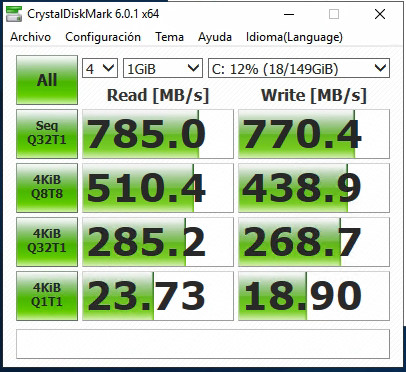Greetings L1T-Forum,
for my first ever post here I was wondering if you fine people could help me and give me feedback on a little project I have planned for myself.
I am planning to build myself a nice “little” Home-Server for multiple reasons (see “Planed Usage” below) and I have thrown together a nice little part list on Pc Partpicker (see below).
I would be seeking some constructive feedback from anyone who can spare the time and maybe has some experience in this space.
Planed Usage
- Basic NAS
- Maybe Plex Server
- Git / VCS Server
- Docker Container server
- CI Server (Jenkins or similar)
- VM Host (don’t know how well that would work)
- Game server (for the verry few games that still support dedicated servers)
- TS3 server ?
- (maybe pfSense)?
Nice to have aspects
- near silent
- inconspicuous (easier to position at home, very objecttive so can be ignored)
Part List
Original
PcPartPicker-List (Updated see Edit2)
(NOTE: I AM NOT GERMAN, just to be clear here! Also, the prices listed in there aren’t the best available to me as PcPartpicker doesn’t use all the shops available to me for its prices.)
Budget
As I am not willing to specify this you can assume that the price in the list would be something I would be willing to pay for a “future proof” Home-Server
OS
most likely freenas
What I would like to ask from You?
If you can spare the time and preferably have som experiance with FreeNas or Home-Servers to have a look at my list and tell me your thoughts. All constructiv feedback is much aprecheated!
(NOTE: for constructive feedback not just a “YOU ARE WRONG” message as this would not help :P)
Final Note
I know this system is most likely a bit OP but hey I thought it would suit my planned use cases best  + I would like to point out that I wouldn’t be asking for feedback if it where final.
+ I would like to point out that I wouldn’t be asking for feedback if it where final.
Oh and I’m not sure if I posted this in the right section of the forum tbh, if not please let me know and i shall delete this one and post it where it belongs 
Thanks for your time!
Thank you all for your feedback, helpful advices and time you givted me by replying to this post!
Status now: Parts ordered and got derlivered, server assembled on christmas day and now fooling around with a few options on OS and configuration level
(I may compose a buildlog, as I have documented most of the build in photos, but I’m not sure when i have time for that or if there is any interes anyway => so maybe let me know?, anyway thanks again and a happy 2019 to you all)
[EDIT0: added budget section]
[EDIT1: add OS section]
[EDIT2: slight change in parts (drop from gt730 to gt210, due to no need for more “power”)]
[EDIT3: HAPPY 2019 to you all! and status update (aka. server assembled and should I post a buildlog)]
 ).
). )
)

 and don’t want to fall into a situation with a bad UPS ruining my equipment
and don’t want to fall into a situation with a bad UPS ruining my equipment